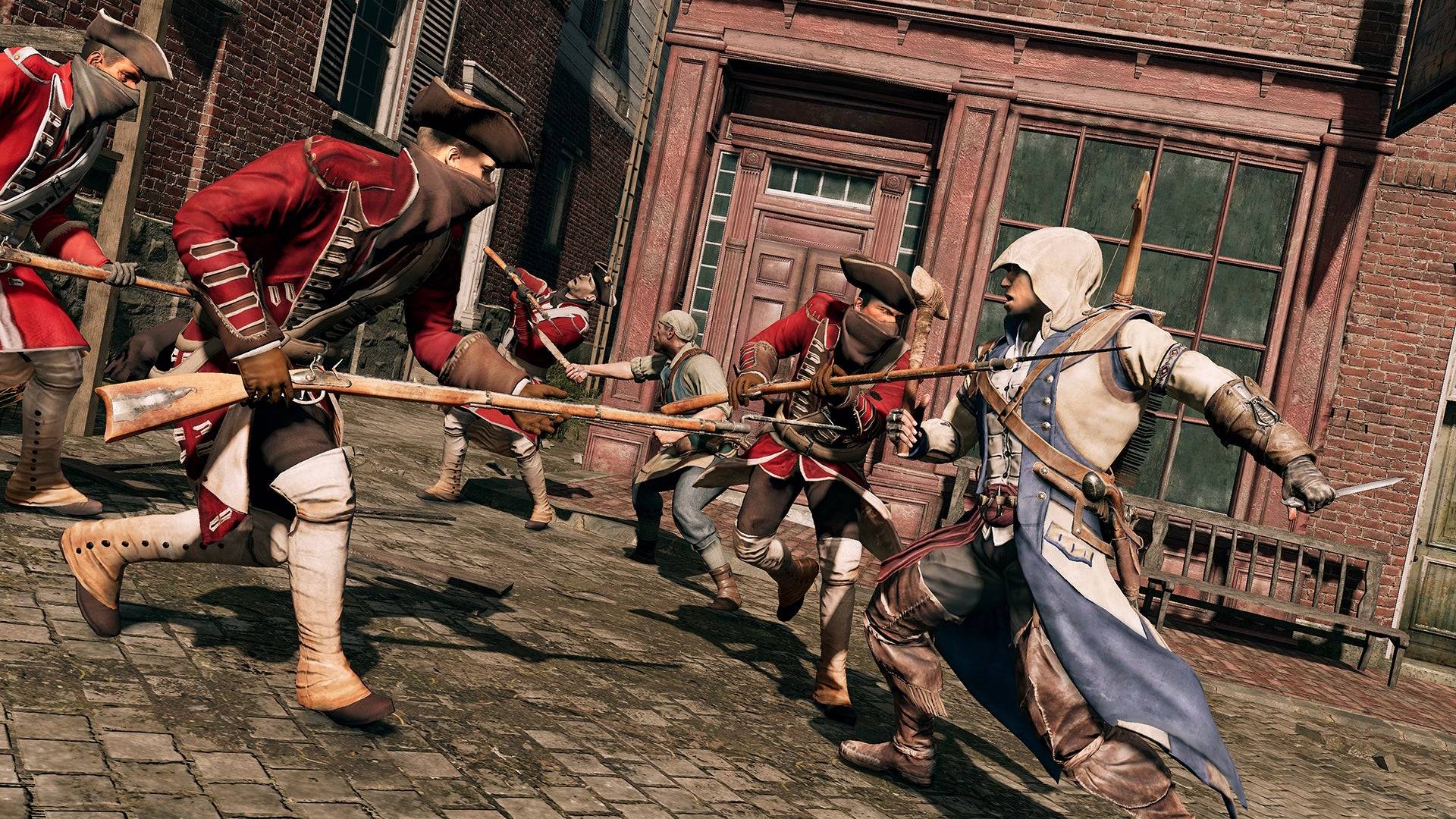One of the most iconic moments in the *Assassin’s Creed* series occurs early in *Assassin’s Creed 3*, when Haytham Kenway gathers his crew in the New World. At first glance, Haytham appears to be a classic protagonist—wielding a hidden blade, exuding charm, and rescuing Native Americans from captivity. He plays the role of a hero so convincingly that it comes as a genuine shock when he utters the familiar Templar phrase, “May the Father of Understanding guide us.” This moment recontextualizes everything you’ve experienced up to that point, revealing that you’ve been playing as a member of the series’ long-standing antagonists.
This twist exemplifies the narrative potential of the franchise at its peak. The original *Assassin’s Creed* introduced an intriguing gameplay loop—locate, infiltrate, eliminate—but fell short on character development. Altaïr, the protagonist, and his targets were largely devoid of depth. *Assassin’s Creed 2* improved upon this by introducing Ezio Auditore, a far more charismatic and memorable lead. However, the game’s antagonists still lacked dimension, particularly Cesare Borgia in *Brotherhood*, whose presence felt underdeveloped despite his historical significance.
It wasn’t until *Assassin’s Creed 3* that the series truly embraced character-driven storytelling. Set during the American Revolution, the game gave equal attention to both sides of the conflict, developing not only Connor but also the Templars he hunted. Each defeated enemy offered philosophical challenges to Connor—and by extension, the player—making the story feel layered and thought-provoking. This balance between gameplay and narrative was masterfully executed and has yet to be matched in later entries.

While recent *Assassin’s Creed* titles have embraced RPG mechanics and open-world design, many fans and critics argue that the series has lost something essential along the way. Some cite increasingly fantastical elements—such as divine enemies like Anubis or Fenrir—as a reason for declining engagement. Others criticize the inclusion of modern romance systems or the casting of real historical figures like Yasuke in *Assassin’s Creed Shadows*. While these points are valid, I believe the core issue lies elsewhere: the gradual erosion of character-first storytelling.
The shift toward expansive, content-heavy worlds has diluted the emotional resonance that once defined the series. Games like *Odyssey* may offer hundreds of hours of content, but much of it feels repetitive and unpolished. Dialogue trees and branching choices often result in bloated scripts that lack the sharpness of earlier titles. In contrast, the focused narratives of the PS3/Xbox 360 era allowed for deeply written, well-defined characters whose arcs resonated emotionally with players.
A prime example is Haytham Kenway’s final monologue, where he acknowledges his son’s strength while refusing to back down:
“Don't think I have any intention of caressing your cheek and saying I was wrong. I will not weep and wonder what might have been. I'm sure you understand. Still, I'm proud of you in a way. You have shown great conviction. Strength. Courage. All noble qualities. I should have killed you long ago.”
Haytham’s complexity stands in stark contrast to many of the antagonists in newer games, who often exist solely to reinforce the idea that Assassins are good and Templars are bad. In *Assassin’s Creed 3*, every fallen Templar offers a moment of reflection. William Johnson laments that the Templars could have prevented the genocide of Native Americans. Thomas Hickey mocks the Assassins’ idealism. And Benjamin Church reminds Connor that morality is subjective. Even Haytham questions whether Washington’s America will truly be free from tyranny—an idea made chillingly real when it's revealed that George Washington himself ordered the destruction of Connor’s village.
By the end of *Assassin’s Creed 3*, the player is left with more questions than answers—a testament to the game’s maturity and ambition. It’s no wonder that the score from *Assassin’s Creed 2*, especially “Ezio’s Family,” became synonymous with the series. That haunting melody captures the emotional heart of the older games, which centered around personal stories rather than endless exploration or loot progression.
While the current generation of *Assassin’s Creed* titles impresses with scale and visual fidelity, they often fail to replicate the intimate storytelling that made the earlier games unforgettable. As the industry leans further into live-service models and sprawling sandbox design, it seems unlikely that the franchise will return to its roots. But for those of us who remember the emotional impact of *Assassin’s Creed 2* and *3*, there’s always hope that one day, Ubisoft will revisit the kind of focused, character-driven experiences that first captured our imaginations.






